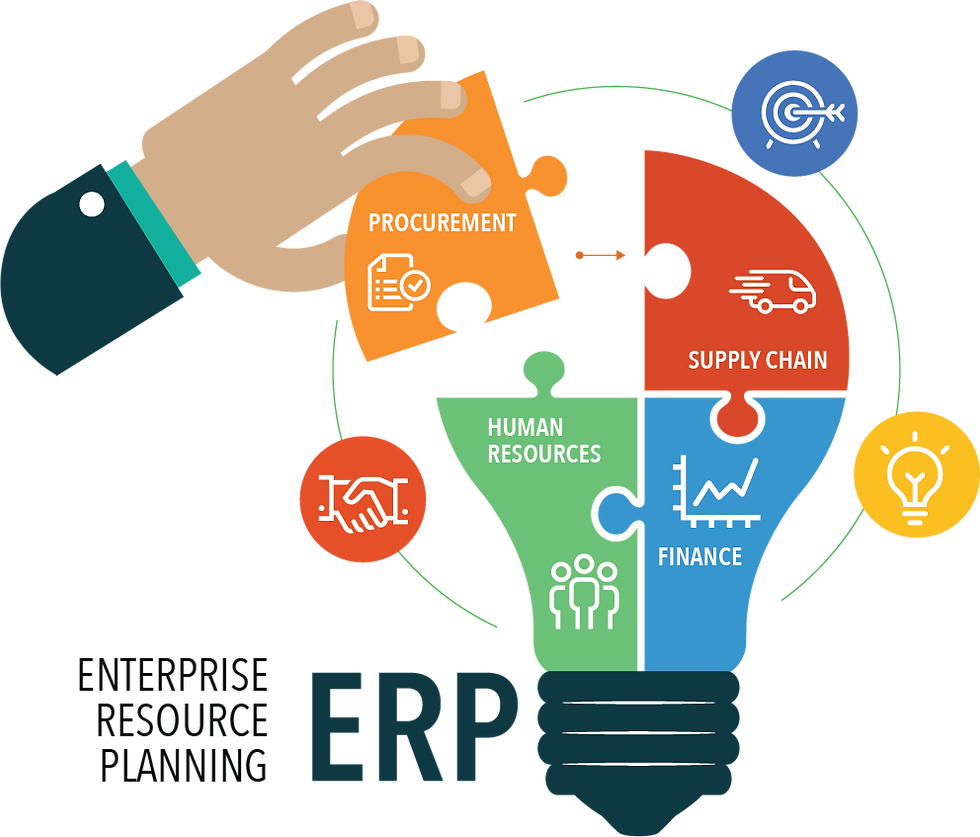Streamlining College Operations with ERP Software: Enhancing Efficiency and Collaboration
- solutionscakiweb
- Nov 14, 2023
- 2 min read
In today's rapidly evolving educational landscape, colleges and universities face multifaceted challenges in managing administrative tasks, student data, and academic processes efficiently. Enterprise Resource Planning (ERP) software has emerged as a game-changer, offering comprehensive solutions tailored to streamline and integrate diverse operations within educational institutions.
Understanding ERP Software for Colleges
ERP software for colleges is a robust integrated platform designed to automate and streamline various administrative and academic functions. It consolidates disparate systems and processes such as admissions, student information, finance, human resources, academics, and more into a unified, user-friendly interface. This integration facilitates seamless communication between departments, improves data accuracy, and empowers decision-making through real-time insights.

Key Features and Benefits
Centralized Information Management: ERP systems act as centralized repositories for student information, including enrollment, attendance, grades, and academic progress. This accessibility enhances data accuracy, eliminates redundancy, and ensures consistency across departments.
Efficient Resource Planning: From scheduling classes, managing faculty workload, to allocating resources, ERP systems optimize resource utilization. They assist in creating balanced timetables, assigning instructors, and efficiently organizing classrooms and facilities.
Improved Communication and Collaboration: ERP software facilitates seamless communication among students, faculty, and administrative staff. Features like portals, messaging systems, and shared calendars foster collaboration and enhance engagement within the academic community.
Financial Management: These systems automate financial processes, including budgeting, invoicing, fee collection, and tracking expenses. They generate comprehensive reports for better financial planning and decision-making.
Analytics and Reporting: ERP software offers advanced analytics and reporting tools. It enables administrators to derive insights from data trends, student performance metrics, and institutional effectiveness to make data-driven decisions.
Enhanced Accessibility and Security: Cloud-based ERP solutions offer accessibility from anywhere, anytime, ensuring stakeholders can access necessary information securely. Robust security measures safeguard sensitive data, maintaining compliance with data protection regulations.
Implementation Considerations
While ERP software presents numerous benefits, successful implementation requires careful planning and execution:
Customization: Institutions should choose an ERP system tailored to their specific needs and workflows, considering scalability for future growth.
Training and Support: Comprehensive training programs ensure smooth adoption across departments. Ongoing technical support is crucial to address issues and updates.
Data Migration: Migrating existing data into the ERP system requires meticulous planning to ensure accuracy and continuity.
Change Management: Encouraging stakeholder buy-in and managing resistance to change is vital for successful adoption.
Conclusion
ERP software is a transformative tool that revolutionizes how colleges and universities manage their operations. By integrating processes, enhancing collaboration, and providing data-driven insights, ERP systems empower educational institutions to focus on academic excellence while efficiently managing administrative tasks. Choosing the right ERP solution and ensuring a seamless implementation process are pivotal steps toward enhancing productivity and achieving institutional goals.



Comments